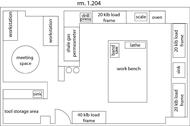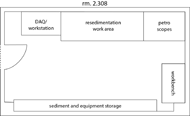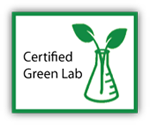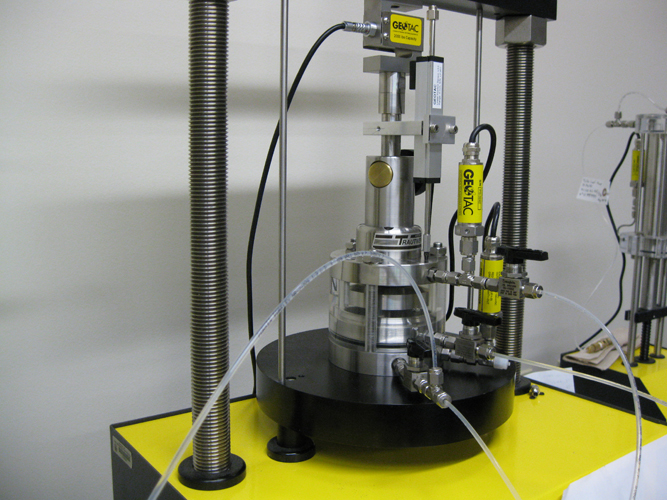GEOMECHANICS LABORATORY
- GeoMechanics Lab Home
- Laboratory Facilities
- Laboratory Procedures
- Resedimentation
- Sample Characterization
- Constant Rate of Strain (CRS) Testing
- Permeability
- Downhole Tools
- Research Opportunities

Bldg 131, 1.204 Lab Floor Plan
click for larger image

Bldg 131, 2.308 Lab Floor Plan
click for larger imageCONSTANT RATE of STRAIN (CRS) TESTING
We often conduct constant-rate-of-strain (CRS) consolidation tests to subject the resedimented samples to higher pressures than possible in resedimentation, either after resedimentation or on intact core. The specimens are laterally confined in a steel ring and are vertically consolidated at a constant strain rate (i.e. uniaxial strain). The top of the specimen is open to the cell pressure whereas the bottom is undrained. During the consolidation test we continuously monitor specimen height, total axial stress, and base pressure. Experiments in the GeoMechanics laboratory are typically run to a maximum vertical effective stress of 21 MPa, (equivalent to about 2 km of burial under hydrostatic conditions but can be run up to 70 MPa.
Through CRS tests we can determine the preconsolidation stress and we can continuously measure and/or calculate the compression and permeability behavior and the coefficient of consolidation (hydraulic diffusivity).

